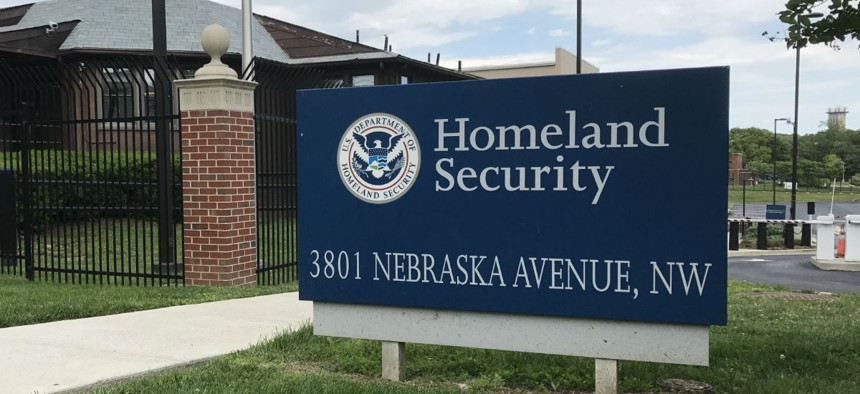
How Homeland Security Spent Millions on a Nonexistent Service
The IG found that the department botched a software purchase in "a textbook definition of waste.”
The Homeland Security Department did such a poor job of monitoring a contractor’s implementation of new performance management software the DHS inspector general found that the “failure literally meets [the Government Accountability Office]’s textbook definition of ‘waste.’”
The Performance and Learning Management System, intended to manage employee training and performance and for which the Human Capital Office spent $24.7 million since 2013, still doesn’t meet the department’s needs, Inspector General John Roth wrote in a report released on Wednesday.
Though PALMS was projected to achieve cost savings of more than $52 million over five years, delays in operations resulted in pointless expenses, such as subscription fees totaling $5.7 million for a nonexistent service.
One big problem, according to the IG: “Despite concerns raised by several internal stakeholders, DHS accepted PALMS as operational in January 2015 without verifying that it worked as it was supposed to.”
The software did not become operational in DHS headquarters until 10 months after the original deadline, and even today, the system has yet to meet the needs of the Federal Emergency Management Agency, the Coast Guard and the Transportation Security Administration, according to the report.
After several years of studying the offerings of multiple vendors, DHS in 2013 entered into a 5-year blanket purchase agreement with Visionary Integration Professionals for a software package designed to deliver, track, administer, and report on employee training and performance. Planners hoped PALMS would improve workforce recordkeeping throughout the department.
But “the PALMS program office did not perform quality assurance monitoring of contractor performance,” the IG wrote, noting that regulations require agencies to use a quality assurance surveillance plan to ensure that contractors deliver what they’re supposed to deliver. In September 2014, the department outlined 15 performance measures that provide incentives and penalties, but delays in implementation continued.
Program managers left some $72,000 in financial credits for non-performance “on the table,” auditors found. And the department failed to follow its own requirements for information technology acquisitions and moved forward without performing required checks at various points. As a result, “DHS was required to spend more than $11.8 million to extend contracts of existing learning management systems due to PALMS implementation delays.”
PALMS program officials “did not test 97 requirements, accepted 21 requirements despite failed test results, and did not verify 13 requirements for compliance with system specifications,” the auditors found.
The IG made seven recommendations, among them that the DHS chief information officer evaluate the current functional capabilities of PALMS and plan a remedy as well as an evaluation of contractor performance across the department to be sure that it receives full financial credit for contractor non-performance.
DHS managers agreed with all seven, saying they remain committed to an enterprisewide effort to automate training and performance records.







